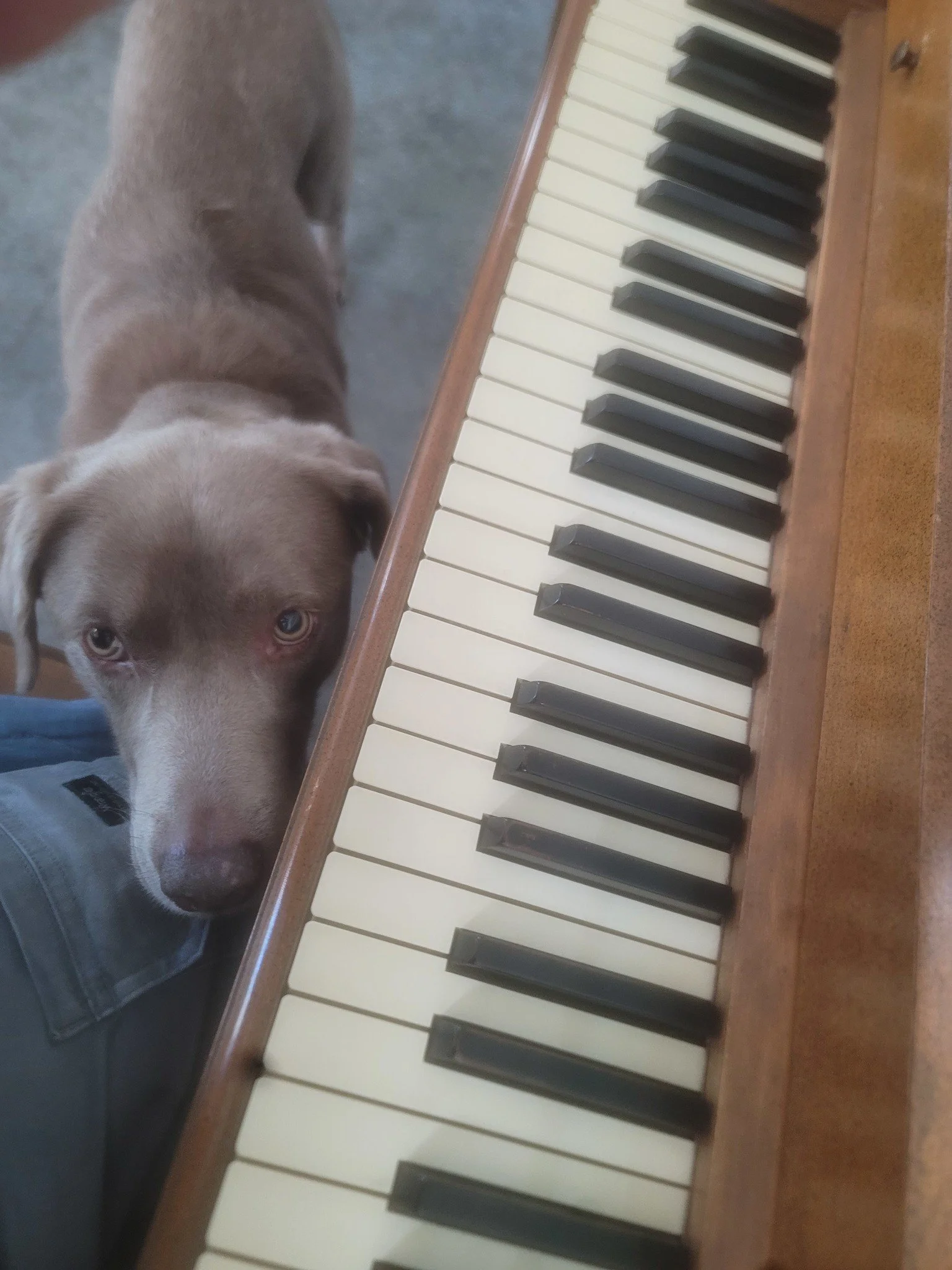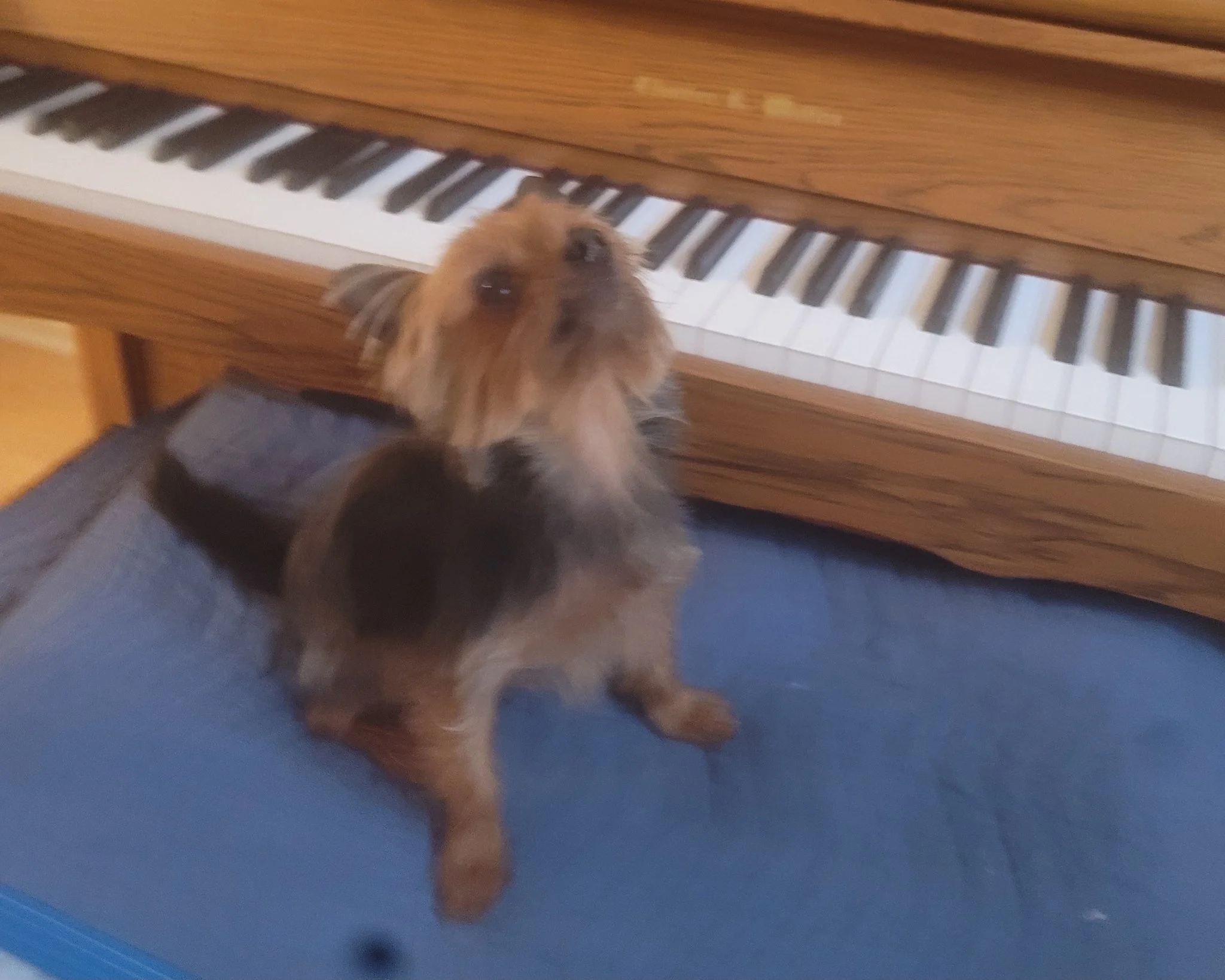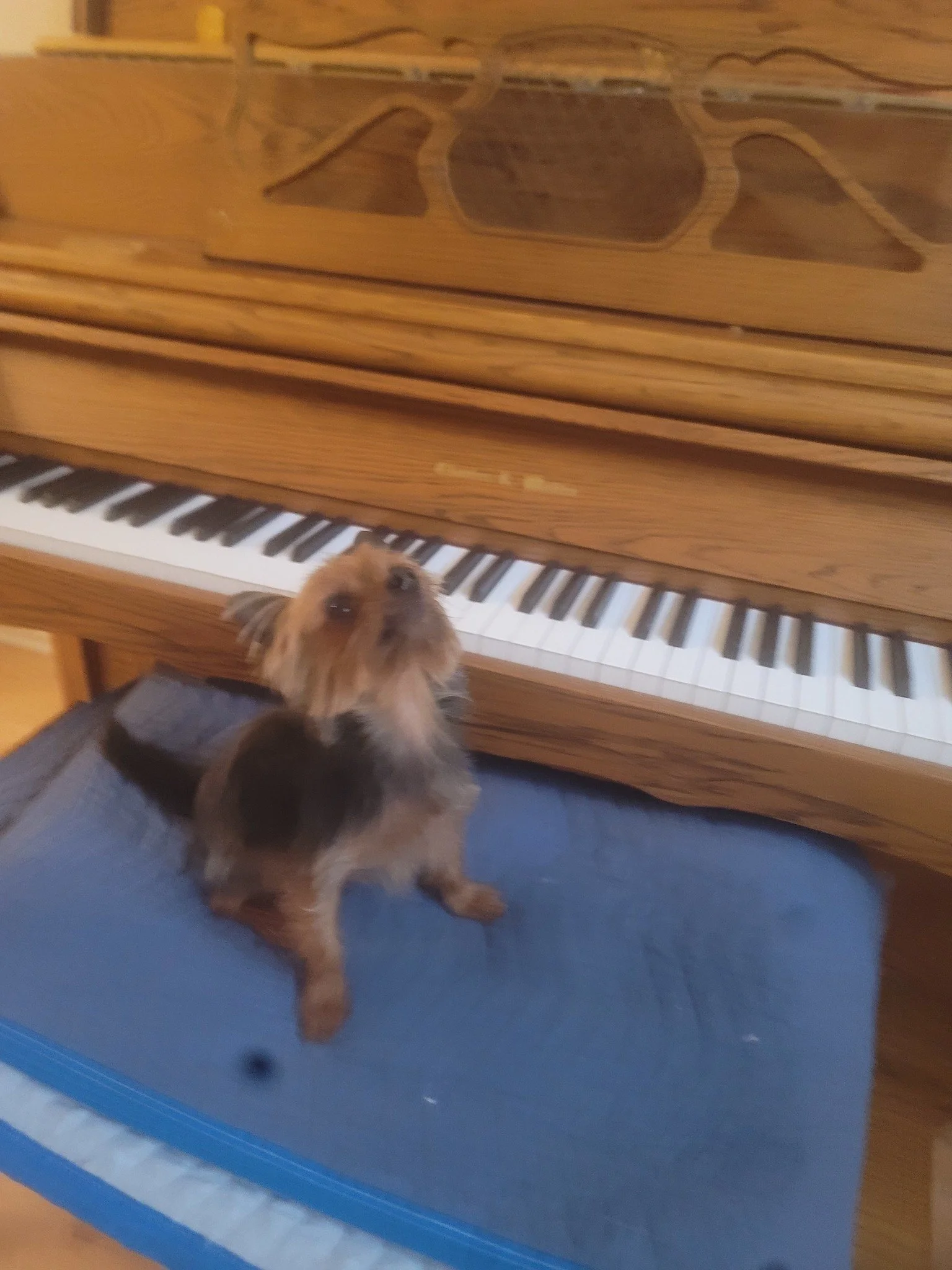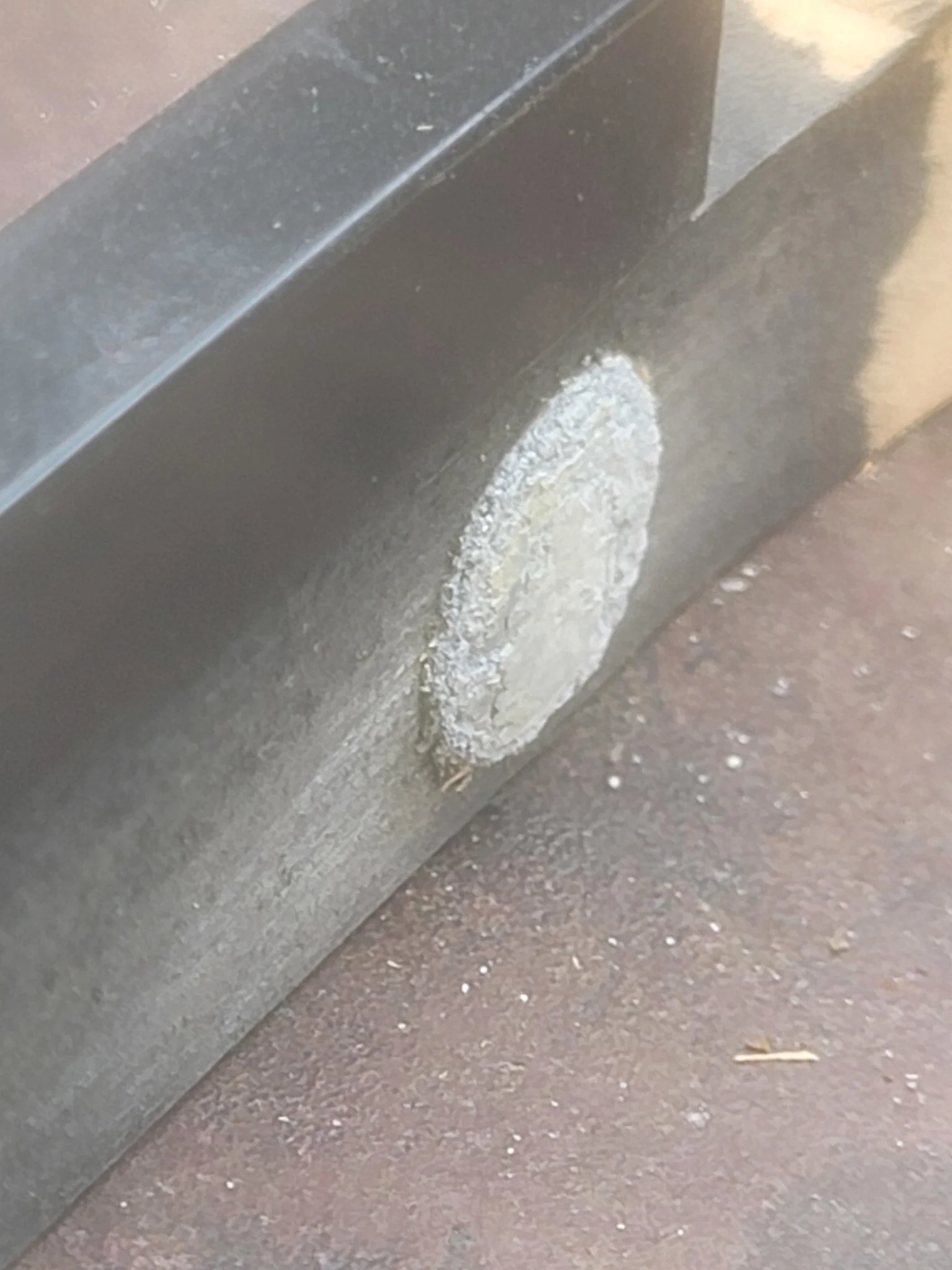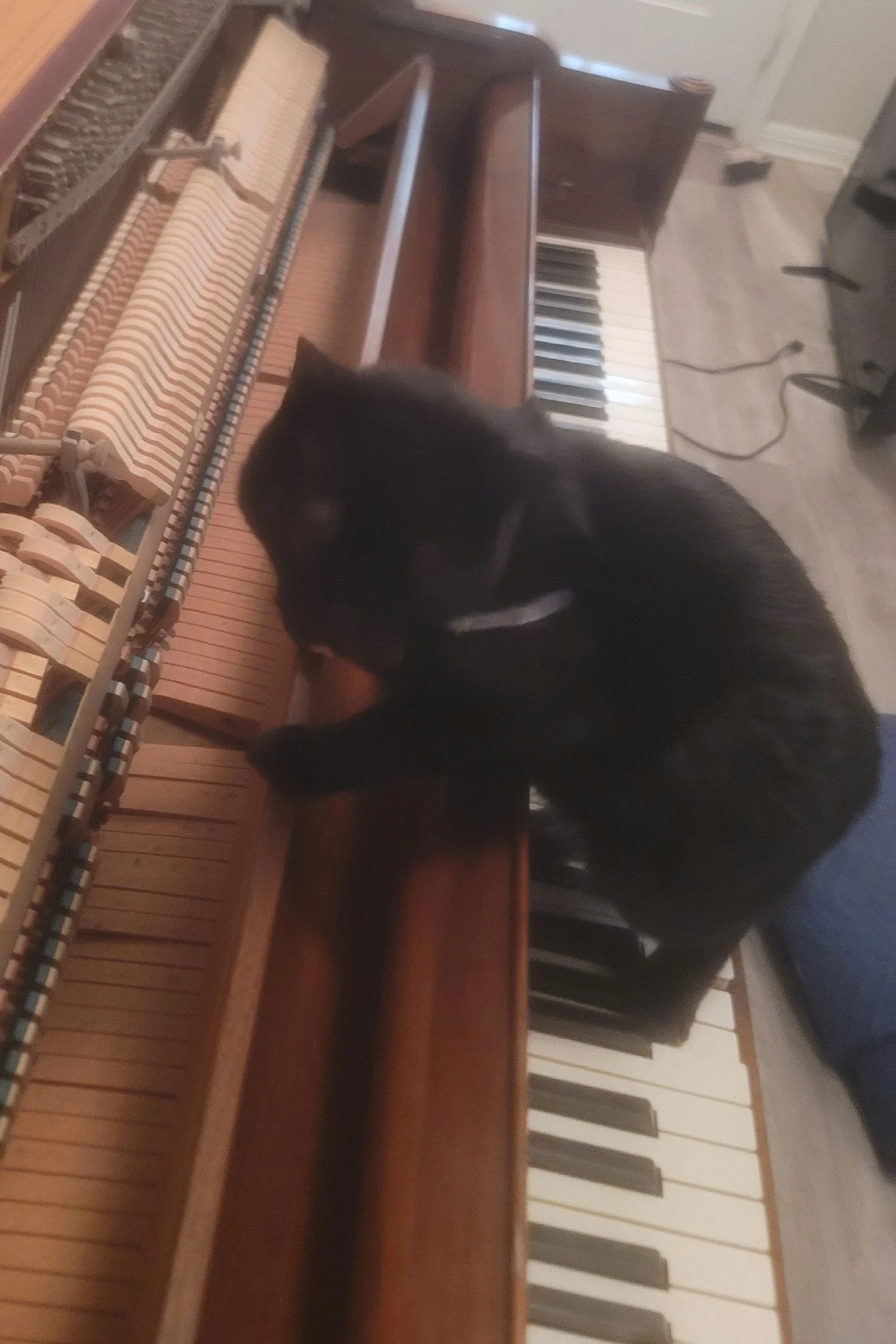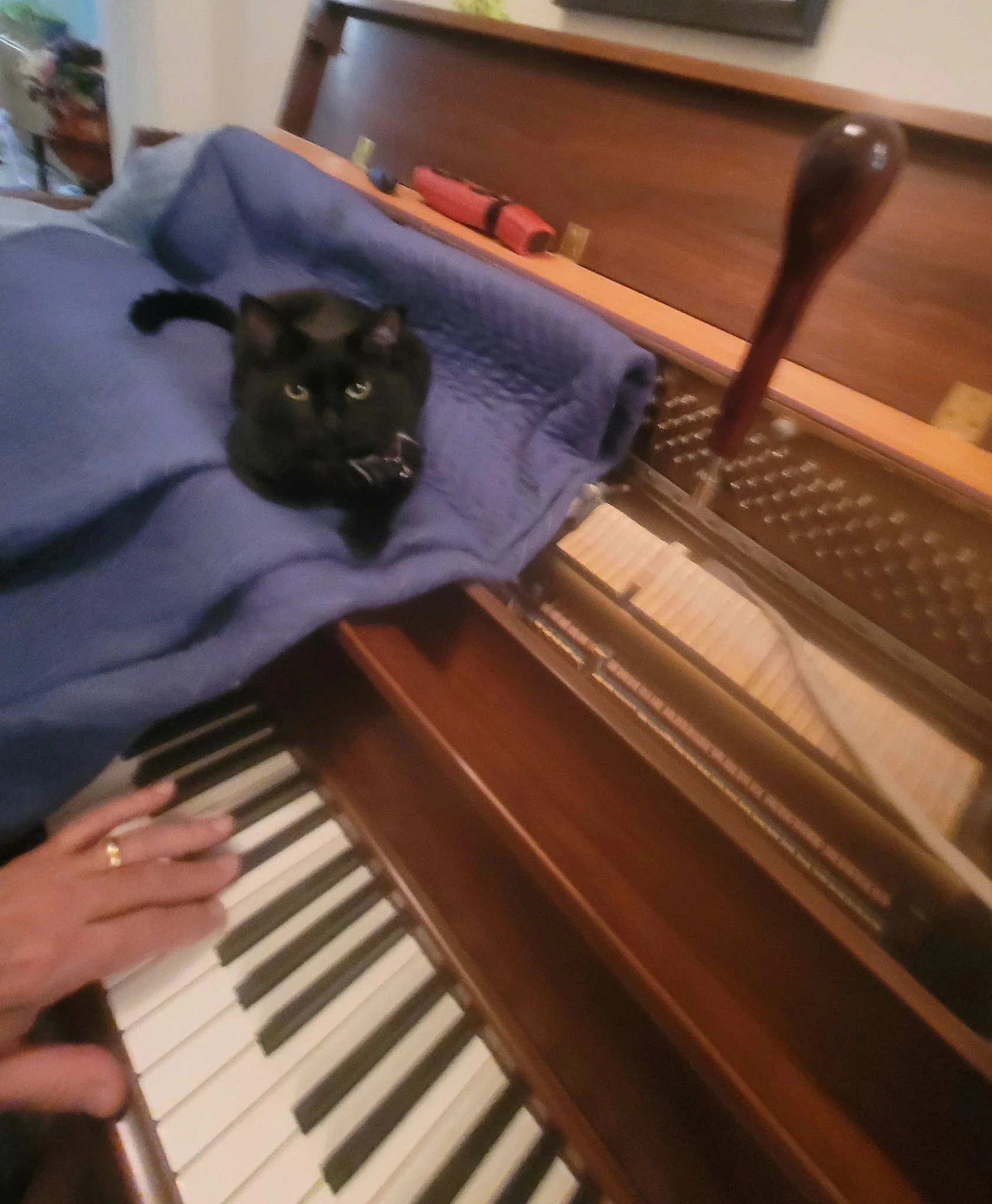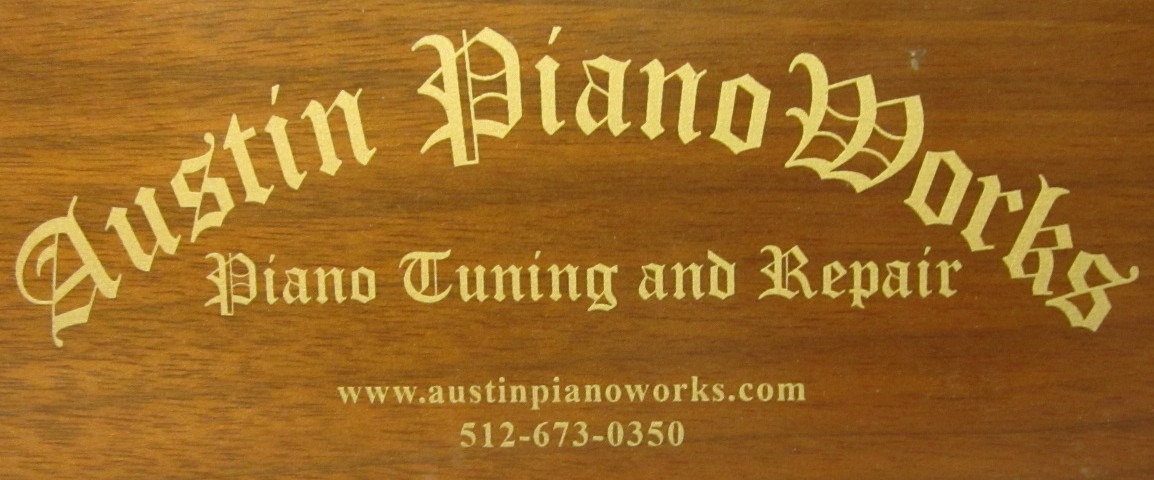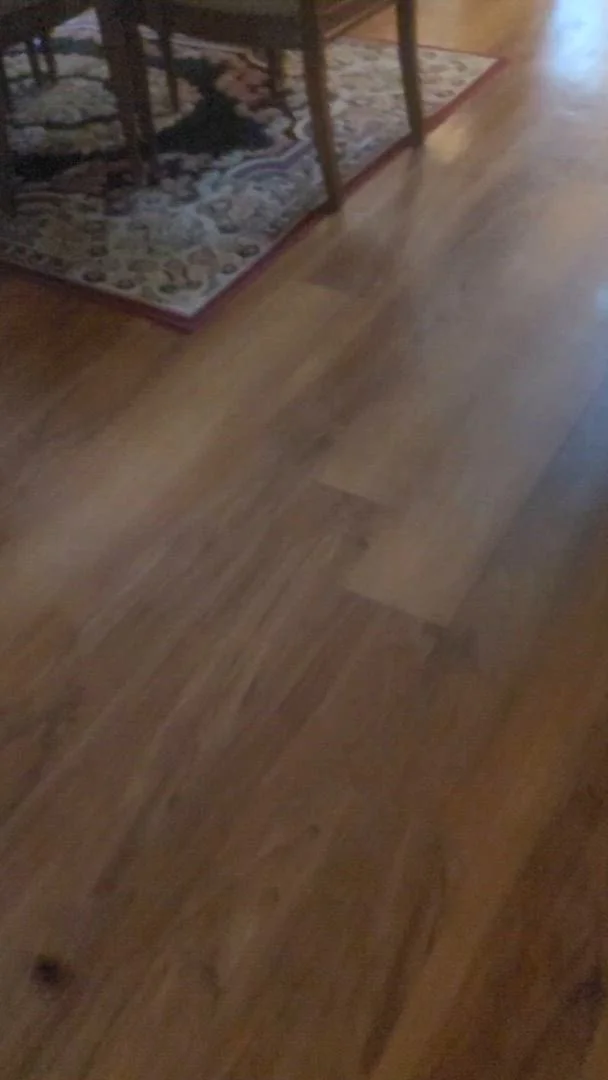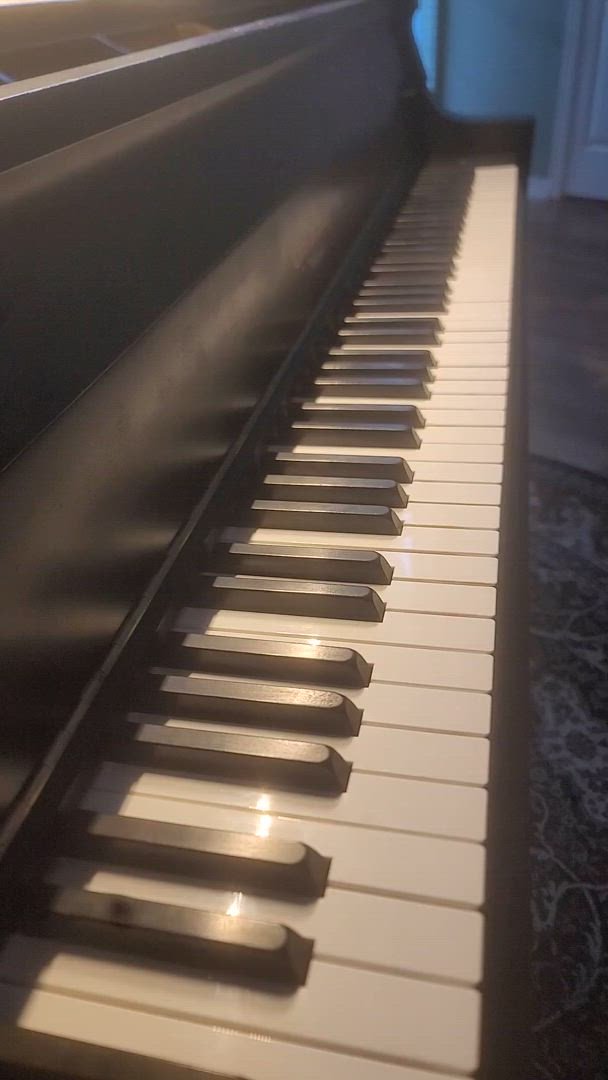Onstage at Austin City Limits preparing for a show
Standard Tuning -- $230 + tax*
We hope you will find our pricing fair and competitive. PianoWorks professional services are not cheap, but the best professional services rarely are. Your work will be done to the highest professional industry standards and your complete satisfaction.
How Flat Will Your Piano Be?
Pianos go out of tune whether they are used daily or yearly, whether they are concert grands or classic spinets. Seasonal fluctuations in temperature and humidity affect all pianos. The average piano drops in pitch about 5% annually (100% equals the difference between any two adjacent half-steps). If the piano has been tuned within the last twelve months, all that is usually needed to leave it at a stable A440 is a fine tuning. If the piano has dropped below 10% flat, a pitch correction (sometimes called a rough tuning or pitch raise) is necessary to increase the tension of all 200+ strings on the plate and frame of the piano before a fine tuning can be stabilized at concert pitch. Without this additional step, your piano will not be stable. That’s usually good enough for in-home or casual use. Consider that on the concert stage or in the studio we pitch raise any piano more than 3% flat before we fine tune.
If the piano has not been tuned in a very long time and has dropped below 20% flat (which takes about four years) the most reliable way to get it back to concert pitch and make it stable again is to tune the piano twice. The first tuning leaving it sharp a percentage of the amount it was flat, and allow it to settle for two to three weeks before it is fine tuned. This decision is only made after examining the age, condition, and value of piano, as well as the manner in which it will be used by the pianist. Each tuning is $230 plus tax.
*PRICING (8.25% Texas State sales tax not included in prices on these pages):
Single-Pass Fine tuning: $230 + tax Pitch corrections: $115 + tax
Minimum non-tuning service call: $115 + tax, covers the first thirty minutes of any appointment.
OTHER SERVICES OFFERED
Thinking of buying a new or used Piano? Have it Evaluated First! Assessments and Evaluations are $230 + tax. We'll inspect everything from the casters to the lid and write it all up in a easy-to-understand, professional report that you can use with confidence.
REPAIR ESTIMATES: $230 + tax. Repair Estimates take about an hour when completed properly. We'll dismantle the piano down to it's component parts and look at everything, providing you with a details list of repairs from which you can choose, customizing your needs to fit the intended use of the piano. If we can start in on the work in the same session, you'll get half of the Repair Estimate ($115) credited back to you on your invoice.
FINISH CLEANING and DETAILING: Dull, dirty finish? Professional "showroom shiny" refinishing can easily cost more than $5000 -- sometimes much more! Many family heritage pianos simply can't justify that kind of cost. At PianoWorks, we have perfected a method of deep cleaning and touch-up that can restore the natural beauty of your heirloom instrument without costly refinishing!
Deep cleaning includes disassembly and deep cleaning of all finished wood case parts, touch-up of minor damage, cleaning the interior of the piano, dust and debris removal from the action and key bed, and reassembly. More extensive damage must be assessed for repair or improvement on a case-by-case basis. Some jobs can be completed onsite, to further save moving charges (rates below do not include moving charges to and from shop).
$1100-- spinets, consoles and upright up to 45” tall
$1650-- full uprights more than 46” tall
Call for current pricing -- baby grand and grand pianos
BRASS CLEANING: Many older pianos have beautiful solid brass or steel hinges, knobs, pedals, pedal rods, and accents beneath the brown layer of dirt and grime. Brass cleaning involves removal of all the brass components from the piano, stripping them clean and applying a thin coat of clear coat to the shiny brass. Coupled with a complete finish cleaning, this additional service can greatly improve the appearance of many older pianos (See “Pianos I Have Loved” ). Because of the vast array of configurations some pianos may have more brass hinges and parts than others. Costs vary from $300 for a a small upright to $1500 for ornate pianos laden with brass, steel, and copper accents.
Piano regulation includes multiple steps to make everything perfect.
REGULATION: Does your piano feel mushy or play lousy even when it's in tune? Loose keys, sluggish action parts, and crusty hammers can really make playing your piano seem like a chore. Regulation will help. Regulation is the process of adjusting all the action parts back to factory specifications -- or as close as the age and condition of the piano allows. There are dozens of points of adjustment on each of the eighty-eight keys of a grand piano that affect touch, response, repetition, and tone. This work is done at an hourly rate and should be customized to the pianist’s needs.
ACTION REBUILDING: Almost every instrument can be completed refitted with all new action parts, including hammers, wippens, dampers, and all the parts that support them. There is a wide variety of parts available, depending upon your tastes and budget.
KEYTOP RECOVERING: $900 Replace old keytops with new! Includes pickup and delivery.
KEY REBUSHING (per rail): $600. Fix wobbling keys by rebushing front and balance rail pin felt with new bushing cloth.
HUMIDITY CONTROL SYSTEM INSTALLATION: Professional installation of the Dampp Chaser piano humidity control system. Call for pricing.
RESTRINGING AND REPINNING:
Restringing a classic 1923 Mason & Hamlin “AA”
Individual Bass Strings: $140 for universal replacement; $160 for custom strings (per string).
Complete Bass Restringing: Includes installation of custom-made or manufacturer original strings, two pitch raises and fine tuning. This repair may be completed in the home in some circumstances:
Grands and Uprights: $80 per wound string (typically 40 - 50 bass string are in a piano).
Complete Restringing: Includes replacement of all understring felts, cleaning the plate and soundboard, replacing tuning pins and all strings. Call for quote.

